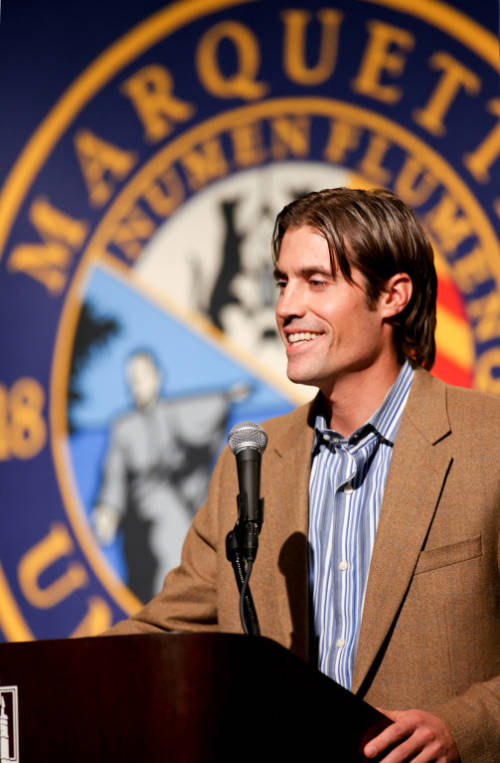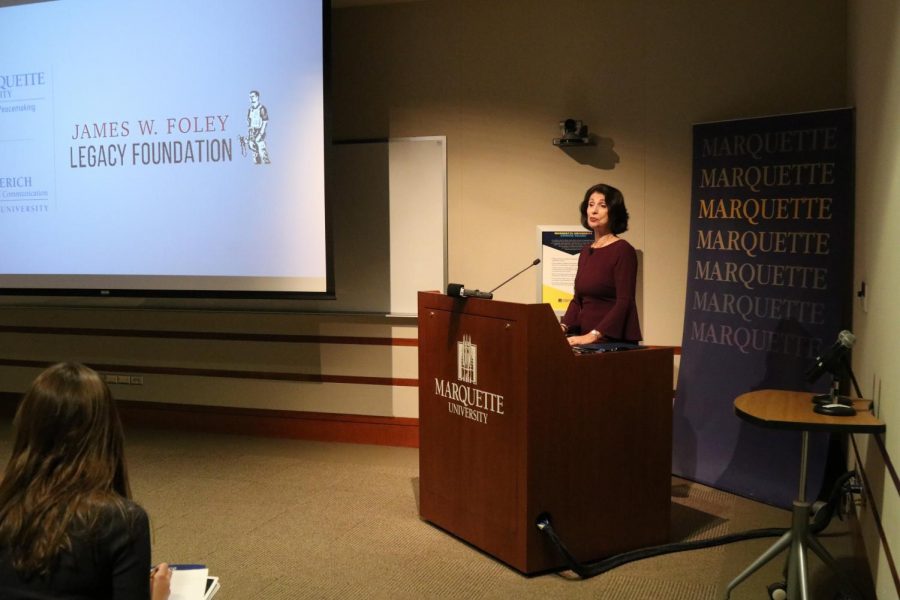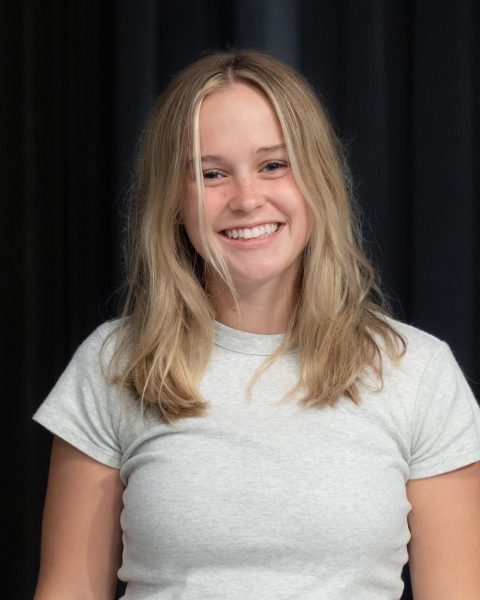After journalist and Marquette alum James Foley was murdered by Islamic State militants in 2014, Marquette has been working to keep his legacy alive for generations to come.
Marquette librarians, administration and friends and family are working to get some parts of his work in the archives by 2024, the 10th anniversary of James’ death.
James’ friend, Tom Durkin, research and grant coordinator for the Center of Peacemaking at Marquette, had a collection of papers that James wrote when he was held captive in Libya. Durkin said he was worried about keeping these papers in good condition. This gave Durkin the idea to archive James’ work.
“I had a long talk with Diane Foley about wanting to preserve Jim’s work. She gave me suitcases full of Jim’s stuff, and I started organizing it,” Durkin said.
Durkin and Diane Foley, James’ mom, went to Marquette’s Raynor library staff to propose the idea, and Durkin said the library staff showed great interest in archiving James’ work.
“I considered Jim my best friend, and I didn’t realize the thirst and hunger for what he produced, because he was just my buddy. It’s been overwhelming knowing how much Marquette cares about this,” Durkin said.
Katie Blank, Marquette digital records archivist, said there are physical and digital items from James’ childhood, personal and professional life in the collection. This includes audiovisual materials, paper materials and a little over nine terabytes of digital material. Blank said the challenge they face is working on preserving the digital materials they have.
“This will be one of our first opportunities as a university to archive things starting in digital form versus old historical stuff where you digitize things so you don’t lose them,” Rana Altenburg, associate vice president of the Office of Public Affairs at Marquette, said.
Altenburg said one of the Foley Foundation’s objectives is to honor James’ legacy, and she said that’s the exact goal of putting this collection together.
“Jim was an educator for many years before he became a journalist, so Jim has always had a real connection to students. While he was working as a journalist, he mentored other youngsters. I really feel like he never stopped that, even when he became more of a writer, he continued to mentor former students and students of journalism,” Diane said.
The Foley foundation puts moral courage at the center of its mission. They value moral courage because it exemplifies the way James did things for the common good even when it came with “personal and political costs.”
Diane said having these materials accessible to the public can help teachers instruct their students moral courage, provide resources for people researching journalism and give insight into other cultures.
“I’m just so indebted to Marquette. They’re really able to see the goodness in our son and his contributions in his short life. That means the world to us because in that way, Jim can keep teaching the world and inspiring kids to make a difference,” Diane said.
Amy Cooper Carey, head of special collections and university archives, said that as an archivist, her job is to keep documents of the history of the university. She said James’ work is both important to the university and the rest of the world.
“I was here in 2014, and I felt the sadness on campus when Jim was murdered, and it had a big impact on me. Even more than that, I really consider journalism, and good journalism, to be a foundational tool of history. As archivists that’s what we’re interested in,” Carey said.
Durkin also said he believes James’ work is essential to the history of Marquette. He said he knows this collection is special because it includes so much content from his personal life which can give people a better idea of James as a person, not just as a journalist.
“Students at Marquette now were really young when this happened, and it’s not something they grew up knowing about. I really believe Jim represents the best of Marquette, and I think students benefit from learning about Jim knowing he walked the same halls and classrooms and experienced similar things,” Durkin said.
Durkin said Marquette really encouraged James to be a man of moral courage. Durkin said there wasn’t a doubt in his mind that both he and Diane Foley wanted the collection at Marquette.
“Everyone you talk to about Jim Foley, they always smile, and they have such good memories of him. He brought people together, and he’s continuing to bring people together through this effort,” Altenburg said.
Altenburg said Diane Foley’s work for the Foley Foundation is “quite remarkable. She said Diane gives so much of herself to other people, so Altenburg said she’s happy she gets to create this collection for her and her family.
“This has the ability for Diane, the Foley family and the people that were close to Jim to keep him alive,” Durkin said.
This story was written by Sophia Tiedge. She can be reached at [email protected]






